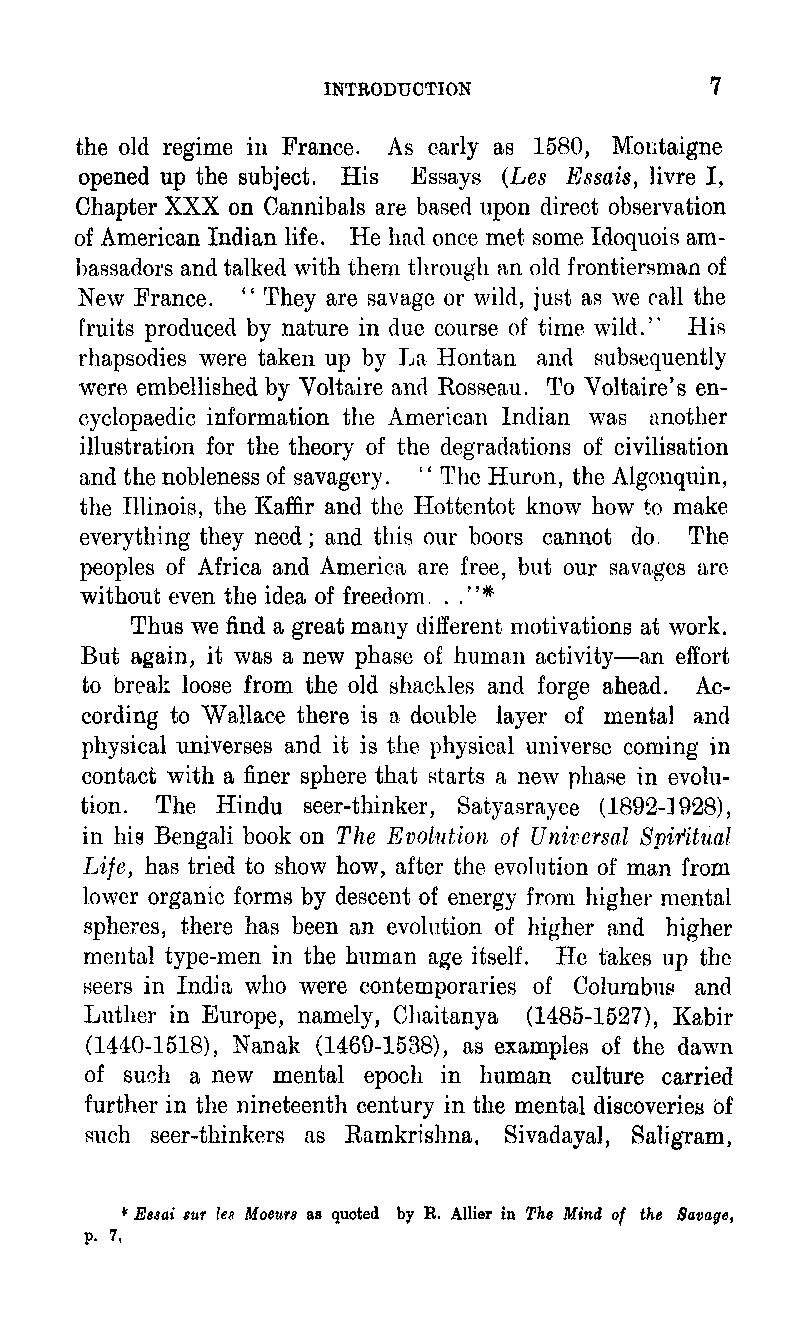the old regime in France. As early as 1580, Montaigne opened up the subject. His Essays (Les Essais, livre I, Chapter XXX on Cannibals are based upon direct observation of American Indian life. He had once met some Idoquois ambassadors and talked with them through an old frontiersman of New France. "They are savage or wild, just as we call the fruits produced by nature in due course of time wild." His rhapsodies were taken up by La Hontan and subsequently were embellished by Voltaire and Rosseau. To Voltaire's encyclopaedic information the American Indian was another illustration for the theory of the degradations of civilisation and the nobleness of savagery. "The Huron, the Algonquin, the Illinois, the Kaffir and the Hottentot know how to make everything they need; and this our boors cannot do. The peoples of Africa and America are free, but our savages are without even the idea of freedom. . ."[1]
Thus we find a great many different motivations at work. But again, it was a new phase of human activity—an effort to break loose from the old shackles and forge ahead. According to Wallace there is a double layer of mental and physical universes and it is the physical universe coming in contact with a finer sphere that starts a new phase in evolution. The Hindu seer-thinker, Satyasrayee (1892-1928), in his Bengali book on The Evolution of Universal Spiritual Life, has tried to show how, after the evolution of man from lower organic forms by descent of energy from higher mental spheres, there has been an evolution of higher and higher mental type-men in the human age itself. He takes up the seers in India who were contemporaries of Columbus and Luther in Europe, namely, Chaitanya (1485-1527), Kabir (1440-1518), Nanak (1469-1538), as examples of the dawn of such a new mental epoch in human culture carried further in the nineteenth century in the mental discoveries of such seer-thinkers as Ramkrishna, Sivadayal, Saligram,
- ↑ Essai sur les Moeurs as quoted by R. Allier in The Mind of the Savage, p. 7
